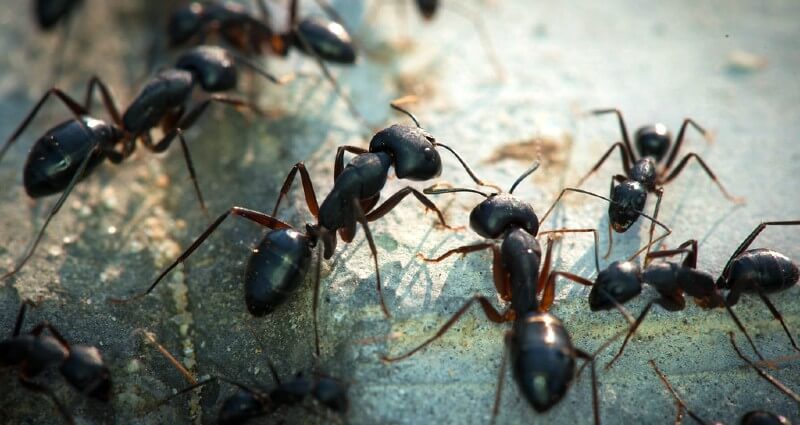Environmental Influence of Bug Control: Balancing Effectiveness With Sustainability
The ecological effect of pest control is an important problem that requires a fragile balance between attaining effectiveness in ensuring and taking care of insects sustainability of our ecosystems. As we aim to safeguard our plants, homes, and health and wellness from the threats postured by insects, the techniques we employ can accidentally hurt the setting. From the usage of unsafe chemicals that permeate into our soil and water to the unintended repercussions on non-target species, the repercussions of standard pest control techniques are far-reaching. There are arising techniques that use hope for an extra sustainable technique to pest monitoring. These solutions not only purpose to address the instant bug problems but likewise take into consideration the long-lasting health and wellness of our earth.
Harmful Chemicals in Bug Control
The use of dangerous chemicals in parasite control postures substantial ecological and health risks that warrant careful consideration and reduction approaches. Pesticides, chemicals, and herbicides are commonly utilized to remove bugs, however their widespread application can lead to unplanned effects. These chemicals can infect dirt, water sources, and the air, affecting not just the targeted bugs however also helpful bugs, wildlife, and human beings.

To attend to these threats, incorporated parasite monitoring (IPM) strategies are being promoted as a much more sustainable option. IPM involves a combination of methods such as biological control, habitat control, and the targeted use pesticides as a last resource (ant control high point nc). By embracing an alternative method to pest control, we can minimize the ecological and health and wellness impacts connected with dangerous chemicals while successfully managing pest populaces
Influence On Non-Target Variety
Considering the unintended effects of insect control methods, the effect on non-target types is a vital aspect that requires detailed examination. While pest control procedures aim to target particular pests, various other organisms in the ecological community may be inadvertently influenced. Non-target species, consisting of useful pests, birds, animals, and also plants, can endure direct or indirect harm from pesticide applications or organic control methods.
Pesticides designed to combat a particular insect pest might harm pollinators like bees or natural predators such as ladybugs. Organic control agents, if not species-specific, can position dangers to unplanned targets, disrupting the ecological balance.
To mitigate the impact on non-target varieties, incorporated pest management (IPM) strategies that emphasize a holistic approach to pest control are advised. These methods focus on using eco-friendly techniques, minimizing injury to beneficial microorganisms while properly taking care of pest populations. Conducting extensive risk assessments and keeping an eye on the outcomes of insect control initiatives are necessary steps in protecting non-target species and advertising general environment health and wellness.
Soil and Water Contamination
Unintended ecological consequences of parasite control methods extend past affecting non-target species, with substantial ramifications for soil and water contamination. Pesticides, herbicides, and chemical fertilizers utilized in parasite control can seep into the dirt and pollute groundwater, presenting a risk to both aquatic and terrestrial communities. Dirt contamination can interfere with the balance of bacteria important for nutrient biking and plant growth, causing decreased dirt fertility and productivity. These chemicals can persist in the atmosphere for extensive periods, gathering in the dirt and potentially getting in the food chain.
Water contamination is another crucial issue connected with insect control techniques. To reduce soil and water contamination from insect control tasks, incorporated insect management approaches that focus on sustainability and lessen chemical inputs are crucial.
Air Air Pollution From Chemical Usage
Direct exposure to airborne pesticides during agricultural applications positions a significant issue for air contamination control procedures. When chemicals are sprayed onto plants, they can volatilize into the air and kind volatile organic compounds (VOCs) and various other airborne contaminants. These chemicals can add to the development of ground-level ozone, a significant part of smoke that can have detrimental impacts on human health and wellness, plant productivity, and total air high quality. Furthermore, chemical drift, where pesticides are brought by the wind to unintentional locations, can bring about the contamination of nearby ecosystems and water bodies.

Strategies for Sustainable Insect Control
In the world of farming practices, executing lasting parasite control strategies is critical for preserving eco-friendly equilibrium and safeguarding plant yields. Lasting insect control stresses making use of eco-friendly approaches to manage pest populations efficiently while lessening damage to non-target microorganisms and ecosystems. Integrated Bug Management (IPM) is a widely adopted technique that incorporates organic, social, physical, and chemical Discover More Here control techniques to achieve lasting bug administration services.
Crop turning and diversity are also efficient techniques to interfere with pest life cycles and develop less beneficial problems for insects to grow. Inevitably, by integrating these sustainable bug control methods, farmers can achieve an equilibrium between pest monitoring efficiency and ecological stewardship.
Verdict
Finally, the ecological impact of insect control approaches should be carefully considered to balance performance with sustainability. Dangerous chemicals used in insect control can bring about soil and water contamination, air pollution, and damage non-target species - ant control. It is vital to implement sustainable bug control strategies to minimize these unfavorable results on the setting and advertise a healthier ecosystem for future generations
By embracing an alternative technique to pest control, we can minimize the environmental and health and wellness influences linked with harmful chemicals while efficiently handling pest populaces.

To mitigate the air pollution caused by chemical use, it is necessary to adopt integrated parasite management methods that prioritize the usage of non-chemical parasite control methods, such as plant turning, natural predators, and immune plant varieties. Sustainable pest control stresses the usage of environmentally pleasant approaches to manage bug populaces efficiently while reducing damage to non-target microorganisms and communities. Integrated Bug Monitoring (IPM) is a widely adopted method that integrates biological, social, physical, and chemical control approaches to achieve long-term insect administration remedies.
Comments on “Specialist Ant Control Services: Custom-made Therapies for Long-term Outcomes”